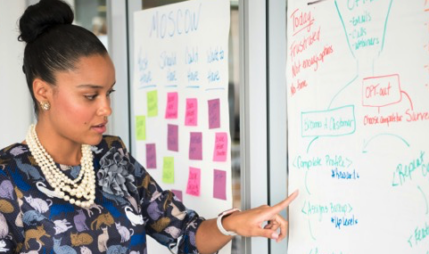Starting my career at Microsoft in the ‘90s launched me into a fast-moving world of technology. One minute we were launching a new operating system, the next launching applications which could make typewriters obsolete, or technology automations so we could work so much faster. Then came the internet and social media and our lives changed even more dramatically.
Social media has made it easier to promote business, to stay in touch with family and friends worldwide. It made it easier to become a celebrity and perceived guru. But it also made it easier for the more negative sides of the human psyche to be given a voice.
Now as we start 2024, I still receive letters, people do still use typewriters, we are able to work faster, but not as fast as we thought we would and sometimes technology has actually slowed us down. People still ‘phone each other to stay in touch – although maybe now on a mobile or over a video call.
Technology has changed everything, and it has changed nothing.
But now we’re standing on a new technology ledge. AI has increasingly dominated the news, vendor marketing, events and even New Year celebrations with discussions of its imminent impact and what it means for us all. But unlike the technologies we’ve bought and used to date, AI is not a binary decision.
AI is being built into technologies we’ll use, so regardless if we want to use AI or not increasingly we’ll find that we are using it just by using technology – and that might be an issue for our clients. AI is not a binary decision because we cannot force employees to use it given there’s tangible apprehension and concern for their jobs. AI is not a binary decision because AI brings significantly more risk than any past technology about the credibility of the work it will produce, and how that work will be used.
As we all stand on this new technology ledge deciding if we’re jumping into adoption or staying still and waiting, we’ve taken the decision to create an AI policy which gives our business a strong ethical framework to guide our approach to leverage AI.
Our policy has been built from the strong foundations of The Bletchley Declaration and The Good Work Charter and centres around four guiding principles:
- Transparency about how we use AI to deliver our services
- Fairness to avoid discriminatory practices and biases.
- Learning opportunities for our team to use AI responsibly, and to aid wellbeing.
- Privacy and security for our employees, customers and partners.
We are committed to the ethical and inclusive use of AI so that we can use its power to drive innovation and positive change whilst continuing to build a business which has the trust of our customers, employees and associates.






